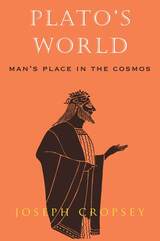Taiwan: The Land Colonialisms Made
Duke University Press, 2018
Paper: 978-1-4780-0357-1
See other books on: Asia | China | Dirlik, Arif | Liao, Ping-Hui | Taiwan
See other titles from Duke University Press
Paper: 978-1-4780-0357-1
ABOUT THIS BOOK | AUTHOR BIOGRAPHY
ABOUT THIS BOOK
The contributors to this special issue examine the role successive colonialisms played in forging a distinct Taiwanese identity and the theoretical implications the Taiwanese experience of colonialism raises regarding the making of modern national identities. In addition to its indigenous culture, a long succession of colonial rulers—variously the Netherlands, Spain, the kingdom of Tungning, the Ming and Qing dynasties, Japan, and Kuomintang China—have forged a distinctive Taiwanese national identity. The Taiwan case suggests that it is misleading to approach colonialism as an obstacle to national identity without also accounting for the ways in which colonialism has historically factored into the constitution of national identities. The contributors address the ways in which the colonizer’s culture transformed the colonized, setting them in new historical directions, even if those directions were not what the colonizers expected.
Contributors: Shu-jung Chen, Leo T. S. Ching, Ya-Chung Chuang, Arif Dirlik, P. Kerim Friedman, Ping-hui Liao, Nikky Lin, Jing Tsu, Yin Wang, Fang-chih Irene Yang
Contributors: Shu-jung Chen, Leo T. S. Ching, Ya-Chung Chuang, Arif Dirlik, P. Kerim Friedman, Ping-hui Liao, Nikky Lin, Jing Tsu, Yin Wang, Fang-chih Irene Yang
See other books on: Asia | China | Dirlik, Arif | Liao, Ping-Hui | Taiwan
See other titles from Duke University Press












